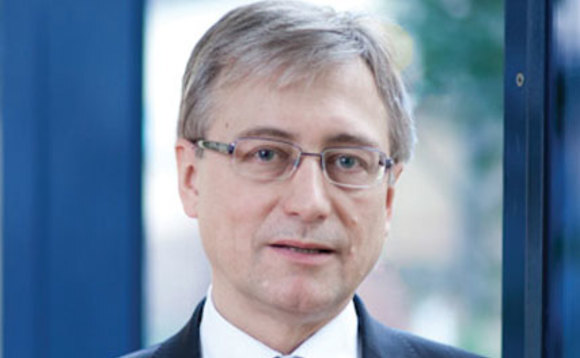
Succession-led deals are biggest opportunity in CEE, says Arx's Korpala

Ahead of the unquote” CEE private equity forum in April, Alice Murray catches up with panellist Jacek Korpala of Arx Equity Partners to discuss dealflow in the region
Alice Murray: Are the credit markets encouraging dealflow in the CEE region as they are in other parts of Europe?
Jacek Korpala: In general they are, especially in the Czech Republic and Poland, where even during the downturn loans were available locally. This has been the case even more so in the lower mid-market, where we operate, because these loans typically come from the balance sheets of local banks. So even if they are part of the larger banks, decisions are made locally – meaning credit has always been available.
Now, with interest rates falling – most notably in Poland and to a lesser degree in the Czech Republic, where there has been a long period of low interest rates – debt has been cheap for a long time. In Poland, it seems as though there is more credit available than ever before.
Looking to other countries, from the outside Hungary and Slovenia would appear to be difficult markets however, we haven't experienced any problems in securing financing for our transactions there. Our view is that credit is available throughout the region, which is making transactions easier to execute.
AM: How is the lending landscape looking in the CEE region? Are banks the dominant lenders or are alternative lenders coming to the fore?
JK: As bank debt is accessible, and as banks are lending from their balance sheets, we are not seeing the same situation that is happening in the US and other parts of Europe, especially for smaller transactions.
For larger deals, I would assume that sponsors are going out of the region to finance the deal at a pan-European level.
When it comes to mezzanine, these lenders are more typically seen when discussing minority interests, as mezzanine can be more interesting for business owners because they do not relinquish any control. In that sense, mezzanine is more of a competitor to private equity.
For buyouts, as there is so much senior debt available, you are less likely to see mezzanine as the bank will facilitate the entire lending package.
AM: Where are deals in the region typically sourced from, and who are the most active sellers?
JK: For us, operating in the lower mid-market, we aim to source proprietary deals. In these situations, if there is a succession story, we have to make a direct assessment of the founder/owner. To do this we have to liaise with any existing advisers of that founder, which could be their lawyer or tax adviser – we have to access the local people advising local businesses.
In some cases, there are founders hiring intermediaries that are national or international players. The difference here is not the relationship, but how we access management and work out who would be taking over the business. Where founders have very strong personalities and have been central to their business, often these companies are not prepared for a sale. This typically means there isn't an obvious successor – no one in the business has been lined up to take over. Here we need to recruit externally and create more of a buy-in situation.
Depending on the market, we see more of certain types of deals. In Slovenia, for example, more businesses are controlled by management. In Poland there are more mid-sized companies that were not privatised, but set up in the late 1980s and 1990s – here we see more situations where there are just one or a small number of owners.
Spin-offs are more related to international corporate spin-offs. They typically arise when large corporates focus on core business activities, or certain geographies. Private equity prefers situations where the business had been previously bought by the corporate and then later spun-off as there is likely to be a local brand attached to the spin-out.
AM: How responsive are CEE businesses to private equity? Is there still a degree of education needed?
JK: The more education the better; there is always space to continue educating businesses about the benefits of private equity. Compared to other places in Europe, private equity has a better perception here. Generally it doesn't have negative connotations.
Also, on the whole, the role of private equity is understood by advisers and intermediaries, by those working in a professional environment – so information is always accessible.
There is a number of entrepreneurs who, because they are aware of our past investments, have made direct contact with us. So there is a large number of businesses that understand private equity and when they can access it.
In some cases there is still a lack of understanding but on the whole it is well-known, especially in developed markets including Poland and the Czech Republic.
AM: How much does the region rely on intermediaries for deal origination?
JK: For smaller deals, there are fewer intermediaries while larger deals tend to be intermediated.
The situation is becoming more mixed in the lower mid-market, where some are and others are not. There are advisers focusing on certain aspects of the deal but not the wider encompassing role of corporate finance.
It also depends on the structure of a deal; if it is a staged exit or complex ownership situation where it is more difficult to run an auction process. In these situations it is more about developing a relationship with the owners, finding shared goals, achieving the best corporate governance.
Also in the lower mid-market, at a certain stage in the deal, there has to be direct contact with management and employees, as it is fairly typical to bring in new management where a successor has not been lined up. Also, in order to execute an efficient transaction, you need to have full understanding of business.
AM: Are there any upcoming events that could impact dealflow?
JK: I can't see any major political or regulatory changes on the horizon that would impact dealflow.
The major influence on dealflow in the region is the generational shift. As many businesses were set up 25 years ago, following the end of Communist rule, a lot of people who set up businesses then are now reaching retirement. Because of that, in the next five years we should see a substantial number of business owners looking for solutions.
Enjoyed reading this article? Listen to Jacek Korpala, among a host of high-profile GPs, speaking on the origination panel at the CEE Private Equity Forum, taking place in Warsaw on April 16. To find out about the event and to book your place, click here.
Latest News
Stonehage Fleming raises USD 130m for largest fund to date, eyes 2024 programme
Sponsor acquired the public software group in July 2017 via the same-year vintage Partners Group Global Value 2017
Stonehage Fleming raises USD 130m for largest fund to date, eyes 2024 programme
Czech Republic-headquartered family office is targeting DACH and CEE region deals
Stonehage Fleming raises USD 130m for largest fund to date, eyes 2024 programme
Ex-Rocket Internet leader Bettina Curtze joins Swiss VC firm as partner and CFO
Stonehage Fleming raises USD 130m for largest fund to date, eyes 2024 programme
Estonia-registered VC could bolster LP base with fresh capital from funds-of-funds or pension funds









